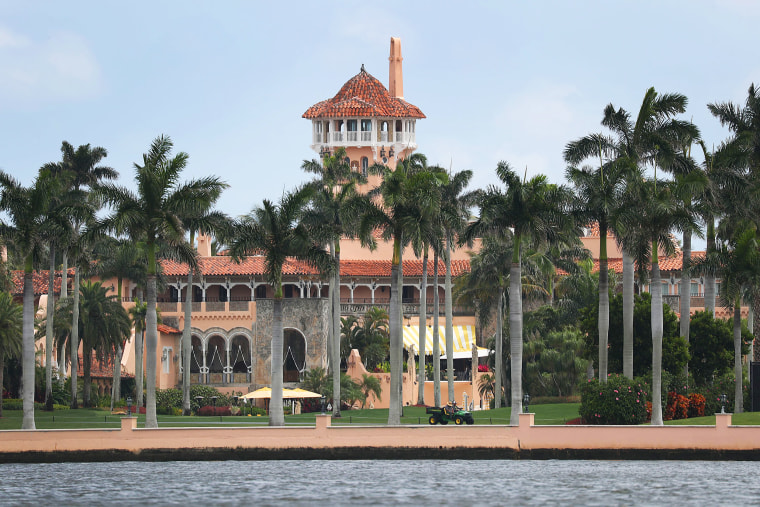As a candidate in 2016, Donald Trump said voters need not worry about his business properties profiting from his presidency. Suggesting that he'd steer clear of Trump-owned businesses if elected, the Republican told voters four years ago this month, "If I win, I may never see my property -- I may never see these places again.... Believe me. Believe me, folks."
Those who believed him, of course, were played for fools. After taking office, Trump proceeded to visit his properties hundreds of times -- and counting -- delivering a steady stream of money to the business enterprise the president still profits from.
In February, the Washington Post reported on Trump's company charging the Secret Service "for the rooms agents use while protecting him at his luxury properties -- billing U.S. taxpayers at rates as high as $650 per night." The article added, "Trump's company says it charges only minimal fees. But Secret Service records do not show that."
Yesterday, the newspaper advanced the story further.
Through these trips, Trump has brought the Trump Organization a stream of private revenue from federal agencies and GOP campaign groups. Federal spending records show that taxpayers have paid Trump's businesses more than $900,000 since he took office. At least $570,000 came as a result of the president's travel, according to a Post analysis. Now, new federal spending documents obtained by The Post via a public-records lawsuit give more detail about how the Trump Organization charged the Secret Service -- a kind of captive customer, required to follow Trump everywhere.
The Post's full report is well worth your time, in large part because the details are so amazing. In one instance, for example, a Trump report charged the Secret Service $1,300 to move furniture during a presidential visit.
But as extraordinary as the reporting is, let's not brush past too quickly the response the newspaper received from Team Trump.
In response to questions for this report, White House spokesman Judd Deere said in a statement that Trump has "turned over the day-to-day responsibilities of running the company though he was not required to, [and] has sacrificed billions of dollars" because of discarded deals. Deere did not directly address questions related to the second set of promises Trump made before taking office -- the promises that he would not use his presidency to help the Trump Organization.
In a written statement, Deere wrote, "The Washington Post is blatantly interfering with the business relationships of the Trump Organization, and it must stop. Please be advised that we are building up a very large 'dossier' on the many false David Fahrenthold and others [sic] stories as they are a disgrace to journalism and the American people."
Right off the bat, I'm curious as to why it's a White House spokesperson commenting on "the business relationships of the Trump Organization," and demanding that the scrutiny stop. Why would the White House care about journalists scrutinizing a private business? If a company wanted to be unburdened of reporters' questions while collecting taxpayer money, shouldn't the arguments come from the company's representatives?
But just as important, if not more so, was presidential spokesperson Judd Deere warning the Washington Post that "we" -- White House officials? Trump Organization employees? Some combination of the two? -- are in the process of "building up a very large 'dossier.'"
Evidently, this file is comprised of articles Team Trump disapproves of from David Fahrenthold, a Pulitzer Prize winning journalist and one of the three reporters who wrote yesterday's Post article.
Fahrenthold, to be sure, has been quite prolific on this beat, exposing dubious financial relationships between the president's administration and the president's business. But if there's any evidence of his reporting being "a disgrace to journalism and the American people," I'm not aware of it.
That said, it's also worth reflecting on the nature of the threat itself. I love Trump/Nixon comparisons as much as the next political commentator, but here's a classic example of where the similarities start to break down. Forty years ago, Nixon and White House aides would've quietly cultivated "dossiers" on journalists they didn't like, hoping no one would find out.
In 2020, members of Team Trump brag about cultivating "dossiers" on journalists they didn't like, hoping everyone will find out.
